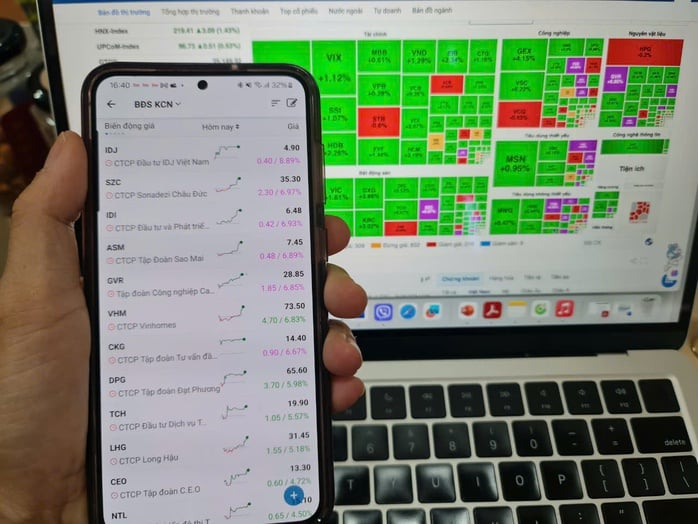In the Draft Law on Personal Income Tax (replacement) recently announced by the Ministry of Finance for comments, the agency proposes that resident individuals transferring securities will be subject to a tax rate of 20% on taxable income. This taxable income is determined by the selling price minus the purchase price and related reasonable expenses in the annual tax period.
In case the purchase price and costs related to the transfer cannot be determined, the tax amount will be equal to the tax rate of 0.1% multiplied by the securities sale price, each time.
For capital transfers, the agency also proposed to tax 20% on taxable income but calculated on a case-by-case basis. In case the purchase price and costs cannot be determined, the seller will be subject to a tax rate of 2%.
Immediately, this information became a hot topic of discussion among investors since yesterday afternoon.
Some opinions say that this proposal is necessary. Mr. Ngoc (a long-time investor in Ho Chi Minh City) thinks that if there is profit from stock investment, paying taxes is a must. In particular, paying taxes on annual profits, instead of calculating taxes on 0.1% of the sale value as it is currently (regardless of profit or loss).
"The current 0.1% tax rate does not support investors who hold stocks for a long time, but many people choose to "surf" and buy and sell stocks in the short term" - Mr. Ngoc stated his opinion.
Meanwhile, many other investors believe that the 0.1% tax rate calculated on the sale value regardless of profit or loss is unreasonable because investment losses still have to be taxed.

Proposal to tax 20% on securities sales gains attracts investor attention
"Even the 20% annual interest tax rate is too high, because most of the transactions on the stock market in Vietnam are by individual investors. Different countries have different tax rates, holding stocks for a long time will have a lower tax rate than selling stocks for less than 1 year" - Ms. Hoang, an investor in Ho Chi Minh City, wondered.
Is the proposal to impose a 20% tax on securities sales profits really reasonable for investors?
However, financial expert Phan Le Thanh Long, General Director of AFA Group, said that the regulation on taxing profits from securities sales is not new but has existed for a long time, the Personal Income Tax Law (PIT) 2007 has stipulated this. The capital gain tax rate of 20% (option 1) is suitable in the world . However, if this tax rate is applied, it will not encourage the development of the stock market. Therefore, at that time, the PIT Law 2007 added an additional option 2, which is to pay a tax of 0.1% on the sale value, regardless of whether the sale is profitable or not, called lump-sum tax.
"Investors will have the right to choose to register for 1 of the 2 options above. And in reality, no investor chooses option 1 which is 20% on interest. By the 2013 Personal Income Tax Law, there is only option 2 and it is applied until now" - Mr. Long said.
To date, the Ministry of Finance plans to amend the regulation in the direction that resident individuals transferring securities will be subject to a tax rate of 20% on taxable income. This taxable income is determined by the selling price minus the purchase price and related reasonable expenses in the annual tax period.
In case the purchase price and costs related to the transfer cannot be determined, the tax amount will be equal to the tax rate of 0.1% multiplied by the securities sale price, each time.
Therefore, according to experts, the proposal to tax 20% interest on securities is not new, and continues to receive attention from investors.
Source: https://nld.com.vn/de-xuat-ap-thue-20-tren-lai-ban-chung-khoan-hang-nam-gioi-dau-tu-xon-xao-196250722095200035.htm






































































































Comment (0)